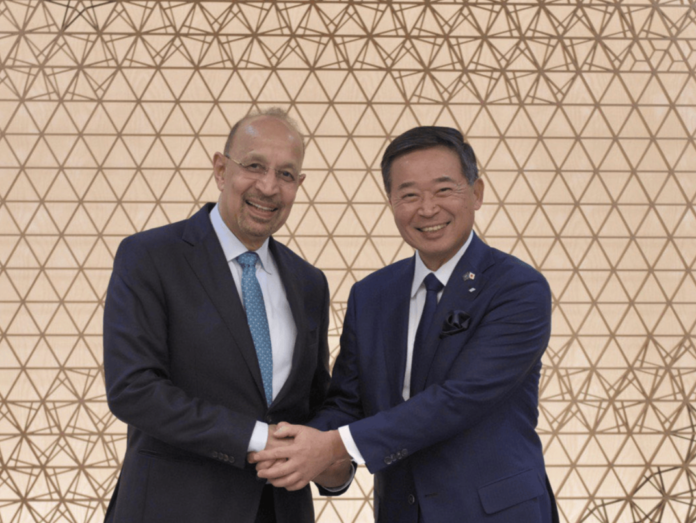Saudi Arabia economic partnerships are growing rapidly with China and Japan. These Saudi Arabia economic partnerships aim to boost investments, technology transfer, and industrial collaboration. The government sent high-level ministers to both countries to create new opportunities and strengthen the Kingdom’s global economic presence.
In China, Minister of Industry and Mineral Resources Bandar Alkhorayef met with leaders of ZGC Group. During the meetings, they discussed partnerships in advanced manufacturing, renewable energy, smart mobility, and aerospace technologies. In addition, ZGC plans to establish operations in Riyadh through the National Industrial Development and Logistics Program, highlighting Saudi Arabia’s Vision 2030 goals. Notably, the key phrase “Saudi Arabia industrial growth” appeared throughout all discussions.
Furthermore, Alkhorayef met with Chinese officials, including ministers of natural resources and industry, and senior leaders from the National Development and Reform Commission. He also visited top industrial and mining companies such as BOE, Kyland, TBEA, Ganfeng Lithium, China Minmetals Corporation, and Gotion Hi-tech. These talks emphasized investment opportunities, technology transfer, and expanding advanced manufacturing in Saudi Arabia.
In addition, the Ministry of Industry and Mineral Resources signed a work plan with the China Mining Association. This initiative promotes knowledge exchange, identifies new mineral opportunities, and supports mining sector growth. Clearly, Saudi Arabia industrial growth continues as a top priority in these agreements.
ZGC Group further showcased its subsidiaries, including FlightWin, which specializes in helicopters and drones, and UISEE, which develops autonomous mobility solutions. Meanwhile, China Power Energy Storage Energy demonstrated expertise in energy storage systems. These subsidiaries directly support Saudi Arabia’s goal to localize 50 percent of defense procurement and advance smart-city operations. Similarly, renewable energy expansion drives demand for large-scale storage systems.
Meanwhile, in Japan, Minister of Investment Khalid Al-Falih led the 8th Saudi-Japan Vision 2030 Committee. There, he met Japan’s Minister of Economy, Trade and Industry Yoji Muto and State Minister for Foreign Affairs Hisayuki Fujii. They reviewed bilateral progress and signed official minutes to reaffirm Vision 2030 commitments.
Additionally, Al-Falih joined the Saudi-Japan Financial Roundtable with 40 senior leaders from Japan’s industrial sector. Discussions focused on financial cooperation, sectoral opportunities, and global challenges. At the same time, the Ministry of Investment–Keidanren Strategic Investment Platform launched to encourage quality private-sector investments. Throughout these talks, Saudi Arabia industrial growth remained central.
Trade between Saudi Arabia and Japan reached $138.2 billion, making Japan the Kingdom’s third-largest trading partner. Furthermore, Japanese investment totaled $23.1 billion, focusing on energy, water, waste management, transport, and manufacturing. Overall, these ministerial visits highlight the Kingdom’s efforts to secure strategic partnerships and advance economic transformation.
Saudi Arabia industrial growth now benefits from technology transfer, private-sector investments, and strong international partnerships. Consequently, China and Japan remain key contributors to this development.


